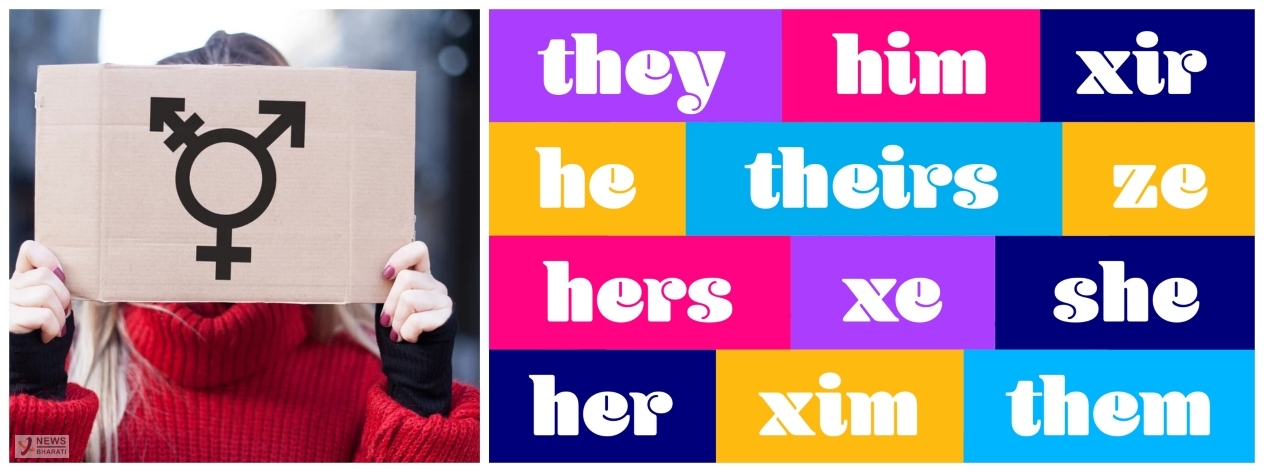What are Gender pronouns in the Woke world?| Wokeism#10
Gender Pronouns or Preferred Gender Pronouns (PGP) are a collective bunch of pronouns that one must use to address another person (belonging to the LGBTQ community) according to that person’s preferences.
Total Views |
In the year 2020, a Canadian man named Robert Hoogland was jailed by a Canadian court because he didn’t use the preferred pronouns of his 14 years old daughter who identified herself to be a male. He referred his daughter as ‘she/her’ when the daughter wanted to be referred with male pronouns (probably he/him). As a result, this act was considered offensive which had the consequences of being a criminal case of domestic violence. These days, one can see ‘she/her’ or ‘he/him’ or ‘they/their’ etc. being added to the bio of a social media account profile.

Gender Pronouns or Preferred Gender Pronouns (PGP) are a collective bunch of pronouns that one must use to address another person (belonging to the LGBTQ community) according to that person’s preferences. If a biological male identifies himself to be a female, he may declare that his preferred pronouns are ‘she/her’. So, everyone must use she/her while addressing him. This can work vice-versa. The origin of preferred gender pronouns is unclear, but their usage has rapidly increased in the last decade or so. How many gender-neutral pronouns exist? Well, that is unclear. The list is not exhaustive. There are ‘Neopronouns’ for the LGBTQ people like ‘ze/hir/zir’ etc.
Also Read: Experiments with Caste| Wokeism#7
There are laws regulating the usage of these pronouns in the US and Canada. In June 2017, Canada passed a bill named Bill C-16 which added the words “gender identity or expression” in its Canada Human Rights Act, and the Criminal Code. There have been several court cases in the US and UK with respect to misuse/refusal to use preferred pronouns. Universities, workplaces, and social media can be said to be the hub of gender pronouns. Several universities across the globe have formulated strict policies regarding these pronouns. Several corporates through their Environmental, Social, and corporate Governance (ESG) policies via diversity training have made the usage of preferred pronouns mandatory. Gender pronouns have entered the profiles of social media accounts of many people. Adding ‘she/her’, ‘he/him’, or ‘they/them’ to every social media profile is becoming increasingly common mostly among urban youth and celebrities. Sadly, there hasn’t been a survey that can include questions as to – why have you added a pronoun to your profile.
It is surprising to see non-LGBTQ people adding pronouns to their bios. Gender pronouns have also now entered the religion. The Church of England is thinking of stopping the use of male pronouns for God and will drop the phrase “our Father” from the God’s prayer. This is because the father is male and the Church authorities have come to the conclusion that God is neither male nor female. This is a contradiction to Abrahamic religious beliefs including Christianity that there is only one God and he is a male. It is therefore pertinent to ask a few questions related to the usage of preferred gender pronouns:
- Why only pronouns? Why not adjectives? I am free to say that my preferred adjectives are handsome and intelligent and every person must address me in that way. Everyone shall address me as handsome and intelligent before taking my name. Will this be tolerable?
- If I refuse to address someone according to his/her preferred pronoun, isn’t this an infringement of my right to free speech?
- How can someone enforce their pronouns on others without any scientific/biological basis?
- Isn’t it grammatically incorrect to refer a singular person as ‘they’ just because it is a preferred pronoun of that person?
- Isn’t this neo-Nazism when you are censored from using the words in which you are free to address someone?
- Will a person just get rejected from a corporate job or a university if he/she does not accept the policy of usage of gender pronouns? Isn’t this against merit?
- What about those people from the LGBTQ community who are ostracized and disbanded just because they refused the usage of these pronouns? Aren’t they LGBTQ enough?
Also Read: What is Gender-affirming surgery? Wokeism#9
Gender pronouns cannot be enforced on anyone. It is against the right to free speech. Enforcement of these pronouns shall be vehemently opposed at every level only on the fact that it is a blatant restriction of a basic human right. This in any way does not mean insensitivity towards the LGBTQ community. The non-LGBTQ or straight people shall ask themselves as to why am I using these pronouns she/her or he/him or any other? Is it just because it has become a trend/fashion? Transgenderism in India and the rest of the world is different. Transgender in India do not even know about these preferred gender-neutral pronouns. This is because they represent a neglected group, unemployed and often seen begging at traffic signals and local trains, not updating their social media profiles with gender pronouns and enforcing them on everyone else.


